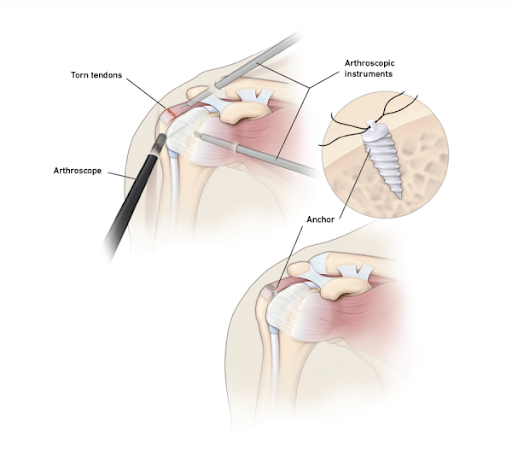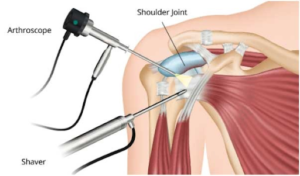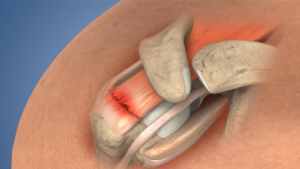
Shoulder Surgery
Shoulder surgery belongs to the group of orthopedics. It addresses a wide array of shoulder conditions which often is a result of degenerative diseases and trauma injury.
Today, we at MyMedTrip.com shall brief you on the various conditions that require shoulder surgery, shoulder surgery procedures, its various techniques, and shoulder surgery cost in India. We will also give you information about shoulder surgery success rates in India and shoulder surgery results.
| Particulars | Details |
|---|---|
| Cost for Shoulder Surgery in India | US$ 3,000 to 4,000 (depending on the medical case of the patient) |
| Discount | 10% on the above quoted price (final hospital’s bill) ONLY APPLICABLE ONLY FOR MyMedTrip.com patients Click here for exceptions and terms. |
| Number of days at hospital (Estimated) | 1-2 days |
| Number of days in India outside hospital (Estimated) | 7 days |
| Treatment’s Success Rate | 98% and above |
| Tests required to help assess the treatment | MRI, CT scan. X-ray, CBC, electrolyte tests, PT, PTT, urinalysis. |
What is covered in the above mentioned cost for surgery?
This price includes surgery cost, doctor’s fee, standard prescribed tests and all standard expenses required at the hospital.
Shoulder Surgery

Shoulder surgery is commonly known as arthroscopic surgery in medical terms. The name originated in ancient Greece. It is derived from two words, ‘arthro’ and ‘skopein’, meaning ‘joint’ and ‘to look’.
Apart from this, shoulder surgery involves two other techniques such as rotator cuff repair and arthroplasty. All these various techniques are used to address various conditions of the shoulder. Shoulder surgery is the last resort of people with shoulder conditions. This surgery aims to alleviate pain and restore normal functions of the shoulder.
About the shoulder
The human shoulder consists of bones, tendons, muscles, and ligaments. Together, these form the shoulder joint which is a ball-in-the-socket joint. The joint is located in the place where the upper arm connects to the body.
The upper arm bone, also known as humerus, is rounded at the end and connected to a socket-like structure called the scapula. Surrounding this is a cartilage around the socket to provide support. While ligaments connect the bones of the shoulder, tendons join these to the surrounding muscles.
The various conditions of the shoulder
There are different conditions that could lead to shoulder surgery. Some of them are:-
1. Osteoarthritis
In this condition, advancing age wears out the cartilage of the joints. Osteoarthritis is symptomized by pain, tingling sensation, restricted motion, and bone spurs which occur when exhausted cartilage cause the bones of the joints to rub against each other.
Generally, osteoarthritis is treated with pain medications, injections, and physical therapy. When these options have been exhausted, shoulder surgery becomes the only available option.
2. Rheumatoid arthritis
This kind of arthritis starts with the body’s immune system attacking the joints. When it begins to attack the shoulder joints, there is inflammation that starts at the joints and continues further. It is symptomized by pain, restricted motion, inflammation, and stiffness. As in the case of osteoarthritis, in the case of rheumatoid arthritis, surgical intervention is the last resort.

3. Bursitis
This condition originates from the brusa, which is a fluid-filled sac that forms a barrier between bones and muscles. The bursa is situated in various parts of the body, including the shoulder, and acts like a cushion to support the bones from rubbing against the muscles. When this bursa swells, there is pain, inflammation, and restricted motion.

4. Shoulder injury
This occurs mostly among athletes such as swimmers and tennis players. There are various kinds of shoulder injuries. Some of them are shoulder instability, in which either of the shoulder joints gets pushed from its original position (this sometimes leads to dislocation)
Another injury is impingement, where due to extreme strain the muscles of the shoulder begin to rub on the surface of the shoulder joints. Another very common form of injury of the shoulder is tearing of the rotator cuff. In this case, surgery becomes an immediate treatment and sometimes people may not completely recover.
5. Dislocated shoulder
Sometimes the ball from the ball-and-socket joint gets displaced and is projected outside. This condition is symptomized by extreme pain, swelling, inability to move, and visibly displaced shoulders. One must seek immediate medical care when this occurs.
6. Tendinitis
This occurs when the rotator cuff or biceps tendon are affected. Since the rotator cuff muscles and bicep tendons support the shoulder joints, when these get inflamed, there is pain. Tendinitis is symptomized by pain and inflammation.

Types of shoulder surgery
There are various methods developed by the medical sector to treat various shoulder conditions. Some of those surgical methods are:-
-
Arthroscopy
This is a minimally invasive technique in which a camera is attached to a surgical instrument called the arthroscope. Most arthroscopic surgery is done to treat pain and inflammation and on an outpatient basis.

2. Arthroplasty
This is a surgical technique used to treat damaged joints. In an arthroplasty, the damaged joints of the shoulder are replaced by prosthetic implants.
3. Rotator cuff repair
Also known as partial shoulder replacement surgery, a rotator cuff repair surgery is mostly used by doctors to treat traumatic injuries of the shoulder. In a rotator cuff surgery, the surgeon will reconnect the tendons to the arms.
Tests required for shoulder surgery
When non-surgical methods of treatment have failed, the orthopedic surgeon will recommend a shoulder surgery. The technique of surgery to be used will be discussed with the patient. However, prior to this the surgeon will suggest some imaging tests to assess the degree of the condition. Some of them will be:-
- MRI
- CT scan
- x-ray
The surgeon will also prescribe blood tests and some other tests prior to operation. Some of them will be:-
- CBC or complete blood count test.
- White blood count test.
- Electrolyte test
- Urinalysis
- ECG
- PT/PTT
Preparing for surgery
After the test results, the surgeon will further give a set of instructions to be followed on the days that lead up to the surgery. Some of these suggestions will be:-
- Quit smoking
- Refrain from alcohol consumption.
- Avoid taking any blood thinning agents.
- Avoid medications such as painkillers.
- Refrain from any solid or linduidified food from the night before surgery.
Shoulder surgery procedure
The surgery convenes under general anesthesia that renders the patient unconscious. This is administered through the IV line attached to the patient’s arms. Following the administration, the surgeon prepares the surgical site for the operation. During this time, the patient’s vital organs are monitored.

For arthroscopy, the surgeon makes a small incision through which the arthroscope will be inserted. Once inside, this instrument projects the live images onto a screen. The surgeon uses this to access the damaged parts of the shoulder.
Following the assessment, the surgeon makes more incisions, and via other surgical instruments the surgeon makes changes. If there is a requirement to apt for the traditional open surgery, then a longer incision will be made.
For arthroplasty, the surgeon attaches a catheter. In the next step, the surgeon will make the incisions and repair the damaged part by the prosthetics. After placing the prosthetic joints, the surgeon tests the suitability of the new joints in the patient.

For rotator cuff tear, the surgeon either makes a long incision or a few small ones. Following this, the surgeon makes the repair by removing the bone spurs and repairing the torn part.

In the last step, the surgeon closes the incisions with bandages.
Shoulder surgery recovery

The recovery time period for various shoulder surgeries are different. Usually when the open surgical method is opted for, the recovery period will last longer. In case of a minimally invasive surgery, the recovery time period is shorter.
Immediately after a shoulder surgery, assistive devices will be given to the patient. Since some of the shoulder surgeries are done on an outpatient basis, the patient will be discharged as soon as the effects of anesthesia wears off. If the patient is kept longer for a day or two, upon discharge the patient will be given a set of instructions. Some of the instructions will include:-
- Keeping the surgical site dry and clean at all times.
- Moving around to avoid blood clots.
- Taking regular medicines to avoid infection at the surgical site.
- Following thorough physical therapy.
- Taking a bath cautiously to avoid any accidental fall

Risks
The common risks involved with a shoulder surgery are:-
- Infection
- Blood clots
- Bleeding
- Dislocation in case of arthroplasty
One must call the doctor immediately if there is persistent pain, high fever, and discharge from the surgical site.
Shoulder replacement surgery encapsulates a wide range of surgeries performed by orthopedic surgeons. For a condition specific to you, you may email us at hi@mymedtrip.com, should you have any queries.
How can MyMedTrip.com help?
If you have decided to travel to India for Shoulder surgery, you may contact us on our WhatsApp Number +91 9818 2373 91 or email us at hi@mymedtrip.com The first consultation arranged by us is free of cost! We also provide visa invitation letters and help in facilitating the medical journey to India along with a set of other services.
When you travel to India, you shall be provided with one case in charge for proper guidance through linguistic barriers, even though most of the hospitals and doctors we feature are well versed with Arabic, Russian,Bengali, and English.
If you have any further queries or questions related to Shoulder surgery services in India, please speak with us for any clarifications.
Frequently Asked Questions about Shoulder Surgery
What is shoulder surgery?
Shoulder surgery is a broad category in the field of orthopedics which is used to treat a wide variety of shoulder conditions.
What are the various conditions of the shoulder?
The different conditions of a shoulder are osteoarthritis, rheumatoid arthritis, bursitis, shoulder injuries, dislocated shoulder, tendinitis etc.
What is osteoarthritis?
Osteoarthritis is an arthritic condition in which the joints have degenerated. The degeneration occurs as a result of the ‘wear and tear’ of the joint cartilage.
What are the various symptoms of osteoarthritis?
The most common symptom of osteoarthritis is pain and restricted mobility.
What is bursitis?
Bursitis is a condition in which the bursa, a fluid filled-sac that forms the barrier between the shoulder muscles and bones, is inflamed.
What are the symptoms of bursitis?
The symptoms of bursitis are pain, inflammation, and restricted motion.
What is a dislocated shoulder?
Dislocated shoulder occurs when the ball of the ball-and-socket shoulder joint gets displaced.
What are the symptoms of a dislocated shoulder?
The most common symptom of a dislocated shoulder is intolerable pain.
What is tendinitis?
Tendinitis occurs when the rotator cuff and biceps tendon get inflamed.
What are the various symptoms of tendinitis?
Tendinitis is symptomized by pain and inflammation.
What are the different kinds of shoulder surgeries?
In broad categories, there are two types of shoulder surgery. One is the minimally inavsive technique and another is the open traditional technique. There are further categorizations in this. For example, an arthroscopy is a minimally invasive technique that uses an arthroscope. An arthroscope is an instrument which is attached to a small light and a camera.






